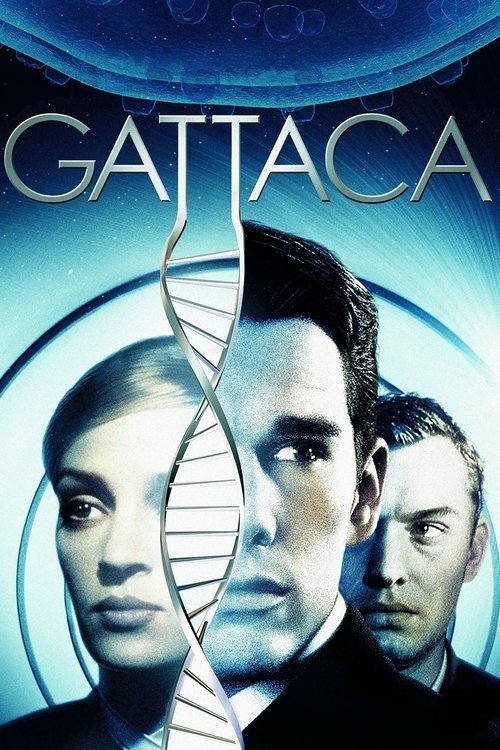
Title: Gattaca
Year: 1997
Director: Andrew Niccol
Writer: Andrew Niccol
Cast: Ethan Hawke (Vincent Freeman), Uma Thurman (Irene Cassini), Jude Law (Jerome Eugene Morrow), Alan Arkin (Detective Hugo), Loren Dean (Adult Anton Freeman),
Runtime: 106 min.
Synopsis: Vincent is an all-too-human man who dares to defy a system obsessed with genetic perfection. He is an "In-Valid" who assumes the identity of a member of the genetic elite to pursue his goal of traveling into space with the Gattaca Aerospace Corporation.
Rating: 7.56/10